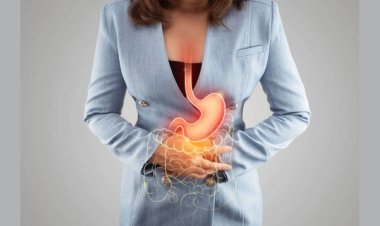Top 9 Foods for Healthy Teeth
The following nine are supercharged Foods for Healthy Teeth – helping to build healthier teeth and gums, as well as prevent tooth decay and gum disease.

Complete oral care extends far beyond brushing and flossing.
There are lots of good habits to adopt to ensure your smile stays bright and beautiful, but don’t overlook the powerful cleansing properties of simple, everyday foods.
The following nine are supercharged Foods for Healthy Teeth – helping to build healthier teeth and gums, as well as prevent tooth decay and gum disease.
Top 9 Foods for Healthy Teeth
Cheese
Cheese is a delicacy for the teeth due to its ability to prevent acid erosion of the teeth, which is good news for cheese lovers.
Every time you consume bread, candies, citrus, or soda, you expose your teeth to acid that causes tooth decay. Eating cheese after a meal can neutralize the acid left by a meal, making it an excellent desert option. Soft cheeses, such as brie and camembert, aged cheddars, and blue cheeses, such as Roquefort, gorgonzola, and stilton, are all great for your teeth.
Fish
In order to safeguard your teeth and gums from disease, it is essential to consume sufficient calcium. However, your body cannot assimilate all of this calcium without sufficient vitamin D. Fatty fish (such as salmon) is an excellent source of vitamin D, which allows your teeth and gums to receive the full disease-fighting benefits of calcium from the foods you eat.
Oranges
This may come as a surprise, given that oranges are citrus fruits. However, the vitamin C in citrus fruits strengthens blood vessels and connective tissue and reduces inflammation to delay the progression of gum disease.
Make oranges, grapefruits, and other citrus fruits a regular part of your fruit bowl, but remember to wait at least 30 minutes before cleansing your teeth after eating them.
Water
The composition of saliva is 99.5% water. The thickening of saliva due to dehydration can create havoc in the mouth.
Optimal salivary water content is necessary for the digestion of food, the neutralization of bacterial acid (hello, morning breath! ), and the prevention of tooth caries. Although it is not as effective as a toothbrush and floss, water can help reduce plaque by flushing away food debris. Rinsing with water after consuming coffee or having other staining foods can help reduce staining to the teeth.
Fruits and vegetables
Have no toothbrush on hand? Fruits and vegetables high in fiber are the next best option. Their high fiber content'scrubs' the teeth in a manner similar to that of a toothbrush, and the additional gnawing they require stimulates saliva production.
The high water content of crisp, juicy fruits and vegetables also helps to balance out their sugar content, enhancing the overall health benefits of salad greens. Keep fresh carrots, celery, cucumbers, and apples (often referred to as 'nature's toothbrushes') on hand at all times, and your teeth will appreciate you!
Celery
When it comes to caring for your teeth, celery stands out among high-fibre vegetables. Each delectable bite of this crunchy superfood essentially cleans your teeth. The fact that it requires vigorous chomping also generates copious amounts of bacteria-fighting saliva, which is beneficial to your overall oral health.
Onion
While you may not enjoy eating a raw onion, adding raw onion to salads and stir-fries will help strengthen your teeth. In fact, onions work to eliminate harmful microbes in the mouth and throughout the body, making them a veritable superfood.
Green and black tea
Polyphenols, which are present in both green and black tea, interact with the plaque-causing bacteria by destroying or suppressing them. Bacteria feed on the carbohydrates in your mouth, and once they are full, they expel acids that erode tooth enamel. Because it inhibits the presence of these acid-producing bacteria in the mouth, tea is a wonderful food to eat before or after a meal.
Also read: Good and Unhealthy Fruits for Teeth
Chocolate
You heard correctly. Delicious chocolate! As long as it contains at least 70% cacao and that you eat it in moderation.
Dark chocolate is a superfood for the teeth due to a compound known as CBH, which has been shown to help strengthen tooth enamel, thereby reducing dental decay risk. However, not all types of chocolate are healthy. Not the chocolate itself, but the cocoa bean contains the good substance, so choose dark chocolate and brush your teeth afterward.
If you have orthodontics, you should avoid eating chocolate with nuts. You should also preserve your chocolate treats at room temperature rather than in the fridge – cold, hard chocolate can be difficult to bite.














